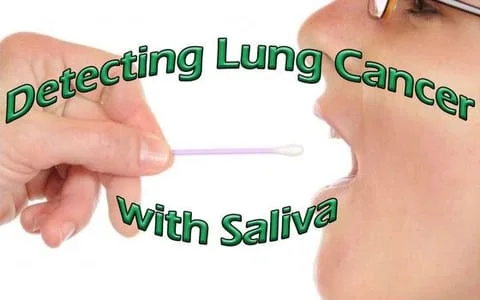LUNG CANCER IS THE NO. 1 cancer killer in the U.S. "In fact, it kills more people than the next top three cancers combined," which are colorectal, breast and pancreatic cancer, says Dr. Desmond D'Souza, a thoracic surgeon and assistant professor of surgery in the division of thoracic surgery at the James Cancer Hospital and Solove Research Institute at The Ohio State University.
A primary reason why lung cancer is so deadly is because it's often detected at later stages than some other cancers. Lung cancer currently does not have a widespread and easy to implement screening test available compared with other cancers – think the annual or biannual mammogram for breast cancer, routine pap smears for cervical cancer, colonoscopies for colorectal cancer and so on. Therefore, lung cancer is typically spotted later on when symptoms begin or accidentally when the patient is being treated for something unrelated.
In addition to looking for biomarkers in the blood, researchers are investigating whether other bodily fluids may provide insight into diagnosing lung cancer early. Researchers in the salivary diagnostics lab at the UCLA School of Dentistry are analyzing molecules in saliva, including DNA, RNA, proteins, metabolites and microbiota to determine whether these elements hold clues as to the individual's cancer status. In a 2016 paper describing this work, the researchers describe saliva as a "biological fluid composed of more than 99 percent water and less than 1 percent proteins, electrolytes and other low-molecular weight components." More than just a component of digestion, saliva may show changes in the concentrations of certain biomarkers, which perhaps could be used "to detect early-stage cancer or to monitor the response to therapeutic management. Salivary diagnostics is a non-invasive, easy to use tool for patient specimen collection."
Currently, lung cancer diagnosis is typically made after a surgical biopsy procedure to remove tissue from the lungs. Depending on the location of the tumor, this is often major surgery that is highly invasive and carries some risks to the patient's overall health. By eliminating the need to cut into the body in such a drastic way to harvest a sample of biomaterial, salivary diagnostic technology offers an appealing way to detect cancer sooner and with less trauma to the patient. Such techniques are currently under development and their use in the clinic is still likely a long way off.



